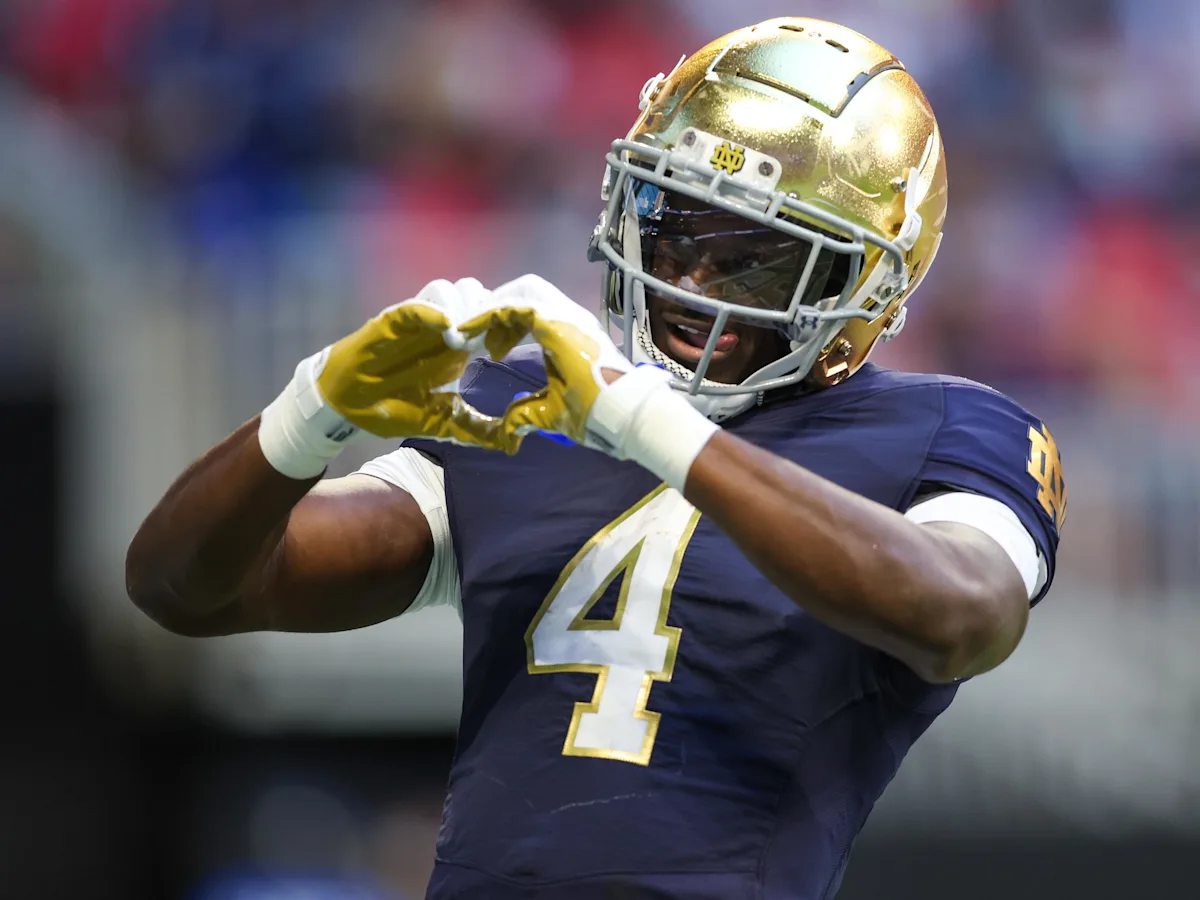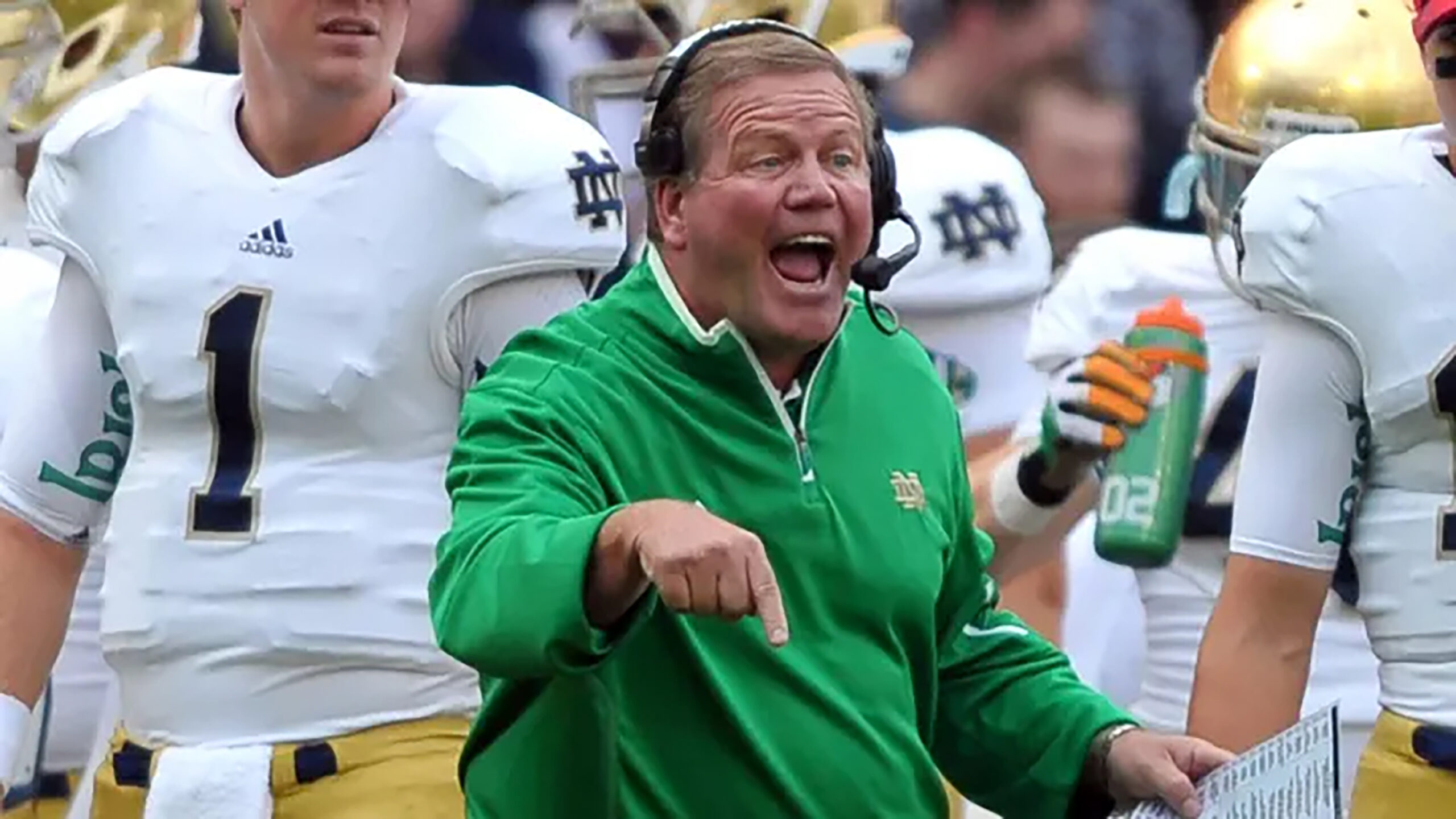Is Notre Dame Football Becoming More Likable?
SOUTH BEND, INDIANA — Notre Dame football has long been a fixture in the cultural and athletic landscape, with iconic symbols like the golden helmets, the Touchdown Jesus mural, and the storied phrases of “Play Like a Champion Today” and “Wake Up the Echoes.” The program’s rich history, deeply rooted in lore and nostalgia, is recognized worldwide. Yet, for every devoted Fighting Irish fan, there’s often an equally passionate detractor.
Notre Dame occupies a unique place in American sports, alongside franchises like the New York Yankees, Dallas Cowboys, and Duke basketball. It’s a program that inspires both admiration and ire, with critics frustrated by its perceived self-importance, excessive media attention, and claims of special treatment.
But something feels different this College Football Playoff season. Notre Dame, under the leadership of head coach Marcus Freeman, appears to be winning over some hearts—perhaps even those who have long dismissed the program.
A Shift in Perception
In their Sugar Bowl victory against Georgia, one of college football’s modern powerhouses, Notre Dame displayed a level of talent and competitiveness that even critics found difficult to ignore. For some fans, this newfound respect stems from a broader frustration with the SEC’s dominance in recent years. As one fan put it during the Sugar Bowl: “For the first time in my life, I’m rooting for ND.”
Marcus Freeman’s presence as head coach has undoubtedly played a significant role. Freeman exudes a calm confidence, skillfully balancing Notre Dame’s storied traditions with the realities of today’s college football. His approachable demeanor and the genuine affection players have for him are reshaping perceptions.
As former Irish quarterback Brady Quinn explained, “If you want me to simply answer why Notre Dame is so likable right now? It’s because of Marcus.”
Historical Challenges
Notre Dame’s polarizing reputation is deeply tied to its history. In the early 20th century, the program faced anti-Catholic and anti-immigrant sentiments, including a standoff with the Ku Klux Klan in South Bend in 1924. Denied entry into the Big Ten during that era, Notre Dame embraced independence, traveling nationwide to build a championship-caliber program that resonated with Catholic immigrants across the country.
However, Notre Dame’s extensive celebration of its past has often drawn ridicule. Critics point to its black-and-white-era successes and note that the last national championship came in 1988 under Lou Holtz. The program’s exclusive NBC television deal, which began in 1991, also fueled resentment during an era when few teams enjoyed such widespread visibility.
The Modern-Day Irish
Brian Kelly’s tenure from 2010 to 2021 brought Notre Dame back to relevance, with multiple 10-win seasons and College Football Playoff appearances. Yet, Kelly’s teams often fell flat on the biggest stages, and his sometimes abrasive sideline demeanor didn’t endear him to the public.
Freeman, on the other hand, has brought a fresh energy and a more relatable image to Notre Dame. He inherited a program built by Kelly but has put his own stamp on it, guiding the team through highs and lows with poise. While early losses to teams like Marshall and Northern Illinois raised questions, Freeman’s steady hand and the team’s thrilling postseason performances have restored faith in the program.
Winning Hearts and Minds
Notre Dame’s recent success has coincided with a broader cultural shift in college football. As conference realignment and transactional trends dominate the sport, the Irish’s independence and focus on academics feel almost nostalgic—a throwback to simpler times.

Star quarterback Riley Leonard recently quipped, “Notre Dame school is outrageous—in a good way. We all love going to class.” This commitment to tradition resonates with many fans, especially as other programs lean into the commercial aspects of the sport.
In last week’s informal social media poll, Notre Dame emerged as one of the most surprisingly likable teams in the current playoff landscape. Though some fans remain firmly “Never Notre Dame,” the Irish’s combination of talent, history, and a charismatic coach has softened the stance of many skeptics.
For now, Notre Dame is riding a wave of goodwill, and with an Orange Bowl matchup against Penn State looming, the program seems poised to further solidify its place in college football’s evolving narrative.
